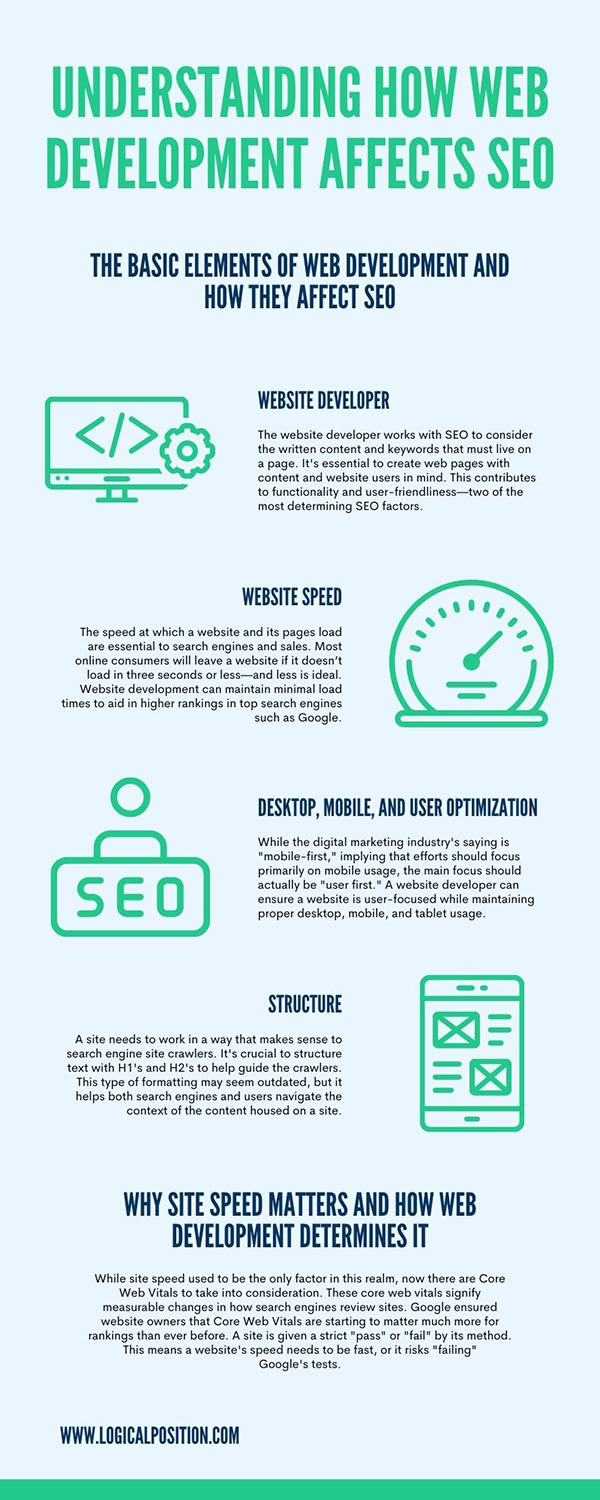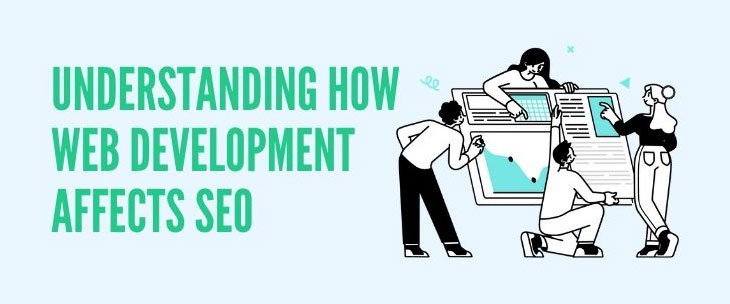Website development is the first step to becoming an online success in business. Every business needs a functional, attractive website to keep sales flowing and customer loyalty and trust healthy. With the continuously increasing competition in the online business landscape, it is increasingly important to fully understand the important elements of quality web design. With the sizable competition online, being seen by consumers is the major battle companies are currently facing.
There are countless ways to increase conversions and impressions on a website. Still, most companies don’t want stand-alone impressions with a high bounce rate—but meaningful impressions leading to conversions and, ultimately, lifelong customers. Some of the methods to increase conversions include pay-per-click advertising, ad retargeting, and search engine optimization. While all three of these methods are highly effective, search engine optimization (SEO) tends to be the most challenging to execute.
Search engine optimization isn’t reliant on ads—it relies on the search engine’s organic results for key terms searched by consumers. Search engine optimization is all about making a website helpful and informative for consumers. This process involves working SEO tactics and keywords into a website’s development. To develop effective SEO on a website, a business owner must first begin understanding how web development affects SEO.
The Basic Elements of Web Development and How They Affect SEO
There are many elements of web design, and most tie into the SEO of a website. Website development that positively contributes to SEO efforts must understand the standard of a good website based on search engines is one that “creates useful content for users.”
Search engines are consumer-focused, intending to create the most user-friendly experience possible for its users. This is also the goal of a website with proper SEO. Explore some of the main elements of website development that factor into SEO.
Website Developer
The actual website developer is one of the most prominent factors in determining a website’s SEO. It’s a common misconception that a developer works on an island away from all other aspects. In reality, a website developer is a beneficial partner for SEO. The website developer works with SEO to consider the written content and keywords that must live on a page. It’s essential to create web pages with content and website users in mind. This contributes to functionality and user-friendliness—two of the most determining SEO factors.
An excellent way to incorporate SEO into the site design is by creating the content first, and developing the page around the content, rather than the traditional inverse. Developing in this order allows the developer to focus on the user experience, and instead of guessing the type and amount of content for a page, have an accurate idea.
Website Speed
The speed at which a website and its pages load are essential to search engines and sales. Most online consumers will leave a website if it doesn’t load in three seconds or less—and less is ideal. Three seconds is a lifetime in the online world while waiting for something to load. Slow site speeds frustrate users and diminish sales. Wasting sales potential is not ideal—but slow site speeds affect more than just these users.
Search engines know when your site speeds aren’t up to par. They identify the frustration these slower speeds cause users and lower a site’s ranking, even if the site has top keywords. Losing top rankings means fewer impressions and far fewer conversions.
Website development can maintain minimal load times to aid in higher rankings in top search engines such as Google.
Desktop, Mobile, and User Optimization
While the digital marketing industry’s saying is “mobile-first,” implying that efforts should focus primarily on mobile usage, the main focus should actually be “user first.” Always concentrate on the user’s experience, regardless of their choice in device, is key to maintaining effective SEO on a website.
A website developer can ensure a website is user-focused while maintaining proper desktop, mobile, and tablet usage.
Structure
The structure of a website is another determining factor in the role of website development in SEO. A site needs to work in a way that makes sense to search engine site crawlers. It’s crucial to structure text with H1’s and H2’s to help guide the crawlers. This type of formatting may seem outdated, but it helps both search engines and users navigate the context of the content housed on a site.
Why Site Speed Matters and How Web Development Determines It
As briefly mentioned above, the speeds at which a website and its pages load is a determining factor in SEO and search engine rankings. Developments continuously happen to make site speeds more critical in determining SEO and rankings of a site. While site speed used to be the only factor in this realm, now there are Core Web Vitals to take into consideration. These core web vitals signify measurable changes in how search engines review sites.
Many factors determine the ranking of a page; most significant are site speed and load time. It’s simple to test a website for site speeds by using Page Speed Insights Google. Google ensured website owners that Core Web Vitals are starting to matter much more for rankings than ever before. A site is given a strict “pass” or “fail” by its method.
This means a website’s speed needs to be fast, or it risks “failing” Google’s tests. During the web development stage, designing a site with load speeds in mind is vital. This means limiting complex and large graphics. Simplifying a site and improving on navigation, user-friendliness, and the essentials help it load quicker.

Why Navigation Matters and How Web Development Helps
The navigation of a website is what helps users to find pages that interest them. This is often a product page in e-commerce applications and contact pages in service-based applications. The navigation of a site affects user-friendliness and site speeds—two factors in search engine rankings.
The navigation of a site should contain labels that accurately describe the content on each page. Each page must house unique content, so each should have a unique label. A generic label such as “specials” is non-beneficial to SEO or users. It isn’t descriptive enough to decipher without further information. A label such as “Clothing” can be beneficial if the page holds information about or buyable clothing products. In this case, the label accurately gives both users and search engine crawlers a sneak peek at what the page is all about. Search engine site crawlers approach a website from a user standpoint, so accuracy is essential.
Keep navigation simple. Every single page doesn’t need to be accessible from the menu initially—it’s okay to put things in the footer. Avoid using mega menus and other graphics-based menu items. These items slow down site speed and use more bandwidth than necessary, which can hurt SEO.
Ways To Improve SEO Through Web Development
SEO is a unique element of a website. It deserves time and attention invested in making it useful and intentional. Many businesses fall into the trap of focusing all of their energy and time on the conversion rate that they let SEO fall through the cracks. User-friendliness is most important when it comes to websites. When a site is user-friendly, it positively affects SEO, while also increasing conversion rates because users will find what they want with ease.
Always protect a site’s SEO by not allowing domination by social media, conversion metrics, and other overarching goals. SEO contributes to all of these and are priorities.
When developing a new page for a website, keep in mind how search engines read it. Google reads webpages in the same way it did at the dawn of the internet age. To comply with this, follow these basic rules:
- Avoid putting text above the page’s H1. This confuses the website crawlers.
- Use different headers to separate content
- Structure a page like a document—use proper formatting!
- Avoid website building tools that allow for “drag and drop” style content. These structures are not comprehendible by site crawlers.
- Ditch the multiple column layout. Search engine crawlers read right to left, just like users, and can get confused.
- Invest in a web developer who knows website development, maintenance, and SEO. Your web developer is a business’s most significant asset, or most significant fault, when it comes to SEO and the user-friendliness of a website. Invest in a platform and developer that is trustworthy.
There are countless resources to help a business or website owner develop a more comprehensive understanding of how web development affects SEO. One of the most beneficial things a business can do for its website is to integrate its website development with their SEO and other digital marketing efforts. To do this, it’s critical to have a professional team well-versed in these areas.
Logical Position is a comprehensive digital marketing agency with specialists in SEO, PPC, website development, paid social media advertising, and more. We are a Google AdWords company and can prioritize what matters to your business. Discover the convenience and advantage of housing your SEO, web development, and more under the same roof can bring for your business. Contact us today for a free consultation.




